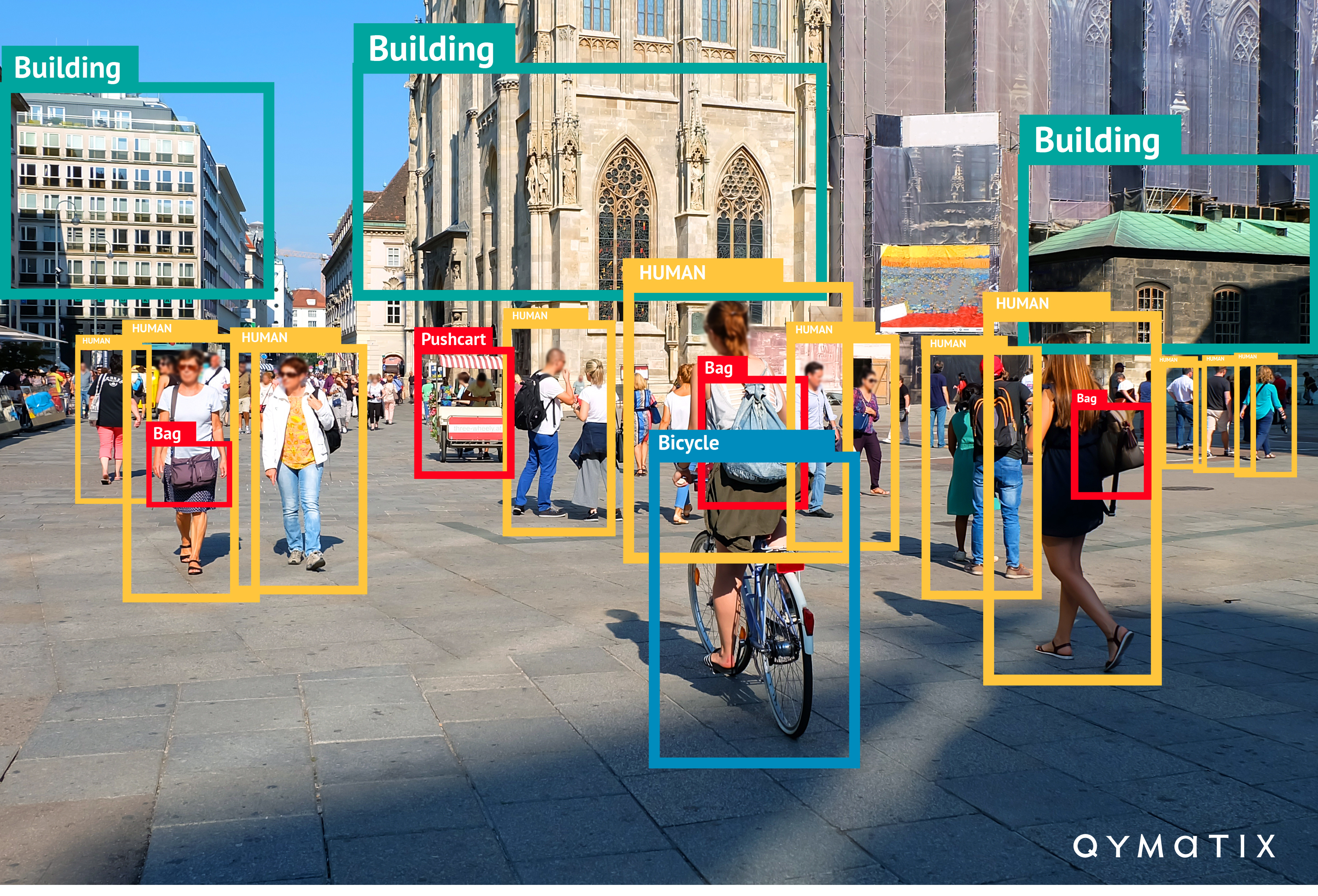What we can learn from the most popular AI scandals
With AI front and centre in our collective consciousness, it’s no surprise that it has also had its fair share of controversy. AI scandals are not that numerous (yet), but they are impactful. So, today we’ll look at some famous AI scandals and what we can learn from them.
Popular AI scandals
Since the 2010s, controversial news stories relating to AI systems and their use have popped up. Here are some of the most memorable and worrisome:
• Facebook's news feed
In 2014, Facebook conducted a controversial experiment where it manipulated the content displayed in users' news feeds. The goal was to study the emotional impact this adjustment could have on its users. Naturally, the study sparked ethical concerns about informed consent and the potential for emotional manipulation. And all this was done without any of the users being aware they were part of a test.
• IBM photo-scraping
In 2019, it was discovered that IBM was using 1 million images of real human faces from Flickr's mixed-use public and private photo-sharing website to train their face recognition. Users didn’t give their informed consent to have their data used in this way. And it has highlighted some ethical concerns around how big data trains their models.
• Google Nightingale
While Google’s motive might be noble - to improve patient outcomes - the idea that they have access to millions and millions of complete patient medical records from the UK and USA should worry you. Patients weren’t informed at the time that their data was being sent to Google as part of Project Nightingale and the information wasn’t anonymised. That means there are staffers at Google with access to fully identifiable medical information who aren’t trained medical professionals.
• Amazon hiring
In 2018, Amazon made an AI recruiting tool to help them sort through and locate top candidates. It was put into widespread use and graded resumes on a star system, just like Amazon reviews. But, like many systems trained on flawed data that have human biases, it began to show favouritism towards male candidates. It started downgrading female resumes based on female-centric characteristics like ‘women’s chess club champion’. As a result, Amazon had to abandon the project.
• Lethal Autonomous Weapons (LAWs)
It will come as no surprise that some countries like the USA and Russia like the idea of using AI for military applications. And in 2018, the UN met to talk about Lethal Autonomous Weapons or LAWs. There’s a 2018 documentary that explores these issues and famous voices like Elon Musk and Steven Hawking have banded together to sound the alarm about AI that has no governance against hurting humans.
• Self-driving car accidents
You’re likely to have heard of the multiple incidents involving self-driving cars, both in test and real-life scenarios. According to KNR Legal, “In 2022, Automakers reported approximately 400 crashes of vehicles with partially automated driver-assist systems to the NHTSA. 273 of these accidents involved Teslas (the most common vehicle with self-driving capability), 70% of which used the Autopilot beta at the time. Out of the 98 self-driving crashes with injuries, 11 resulted in serious injuries. Five incidents involving Teslas were fatal.”
While that’s less than the road traffic accidents caused by human drivers, it’s still too much to gain confidence in such systems.
• Cambridge Analytica
In 2018, we all learned that a 3rd-party firm had been given access to the personal data of approximately 87 million Facebook users back in 2014. All without their consent. And this company, Cambridge Analytica, used the data to influence politics and manipulate public opinion. As a result, there’s a $725m class-action lawsuit currently underway against Meta.
• Deepfakes
The growing trend of using faked video footage of celebrities or influencers to sell products is ubiquitous on websites like TikTok and YouTube. But, there’s also concern over body autonomy, child protection and personal rights as now this technology is being used to create adult material too. In the Netflix series ‘Black Mirror’ this concept is explored further in the episode “Joan Is Awful’ where a random ‘Streamberry’ user realises they’ve signed away the movie rights to their day-to-day life when they registered for the service. Calamity ensues.
• Tay, the Twitter Bot
In 2016, Microsoft launched a fun little AI personality for users to interact with on Twitter called Tay. She was designed to learn and grow while talking with people online. But it went sour quickly. Built to interact with 18-24-year-olds, the coders at Microsoft didn’t really think about what the bot might learn. Within hours, the bot was racist and offensive, prompting Microsoft to take it offline forever.
• AI-generated art and copyrights
The emergence of AI-generated art has led to debates about copyright and ownership. There are arguments on all sides. Some say that AI does make new pieces and that work should be protected and others insist that since AI cannot have experiences, all work should be owned by the human artists that inspired it. Further still, some argue that the prompt engineers are the real artists, simply using a tool to make art like a pen - and that they should own the copyright.
CALCULATE NOW THE ROI OF QYMATIX PREDICTIVE SALES SOFTWARE
Learning from the most popular AI scandals
The most important takeaway is that we still have a lot of work to do in this space. The ethics, laws and application of AI are still being decided. And we can use scandals as a rubric for how we want our future to look.
Will we have killer robots or should AI always be used for good? How should humans be treated and what can AI own? While we might not have all the answers just now, we can learn from these controversies and use them to create policies and legislation that protect everyone. For now, the approach is clear: we should only use AI to uphold the highest standards of good for humans at all times.
Interested in ethically using AI in your own business to get ahead of the marketplace? We can help. We empower your sales teams to deliver above and beyond forecasts with smart, AI-supported tools.
What is “return on sales” and how to improve it?
Businesses looking to increase growth may find themselves asking, “What is ‘return on sales’, why is it important and how to improve it?”. If you’re in this same position, you’re not alone.
As an important metric for business success, today we’ll answer these core questions and offer some advice on increasing return on sales in your organisation.
Is Artificial Intelligence (AI) dangerous?
As with any new technology, there will be experts that are for and against it.
Today, we’ll explore the subject of artificial intelligence more fully. What concerns are there in relation to AI?
Read more
B2B Wholesale Future Trends 2024
Across B2B wholesale future trends 2024, you’ll see a few key themes: technology, personalisation and change.
Some are accelerations of global movements, while others are specific to the B2B space. We’ll break down what you can expect in 2024 and where these movements are coming from in this quick, 5-minute read.
What are Algorithms - Easily Explained
Algorithms - the word gets tossed around today for everything from your basic Instagram feed recommendations to complex interfaces like ChatGPT. But what are algorithms? Are they just for computers? How do they help you?
In today’s article, we’ll explain what algorithms are and give some examples of how you can benefit from this ubiquitous but often-misunderstood technology.
Read more
Predictive Analytics vs Prescriptive Analytics
With so many types of data analytics and analytical methods out there, many people are curious about the relationship between predictive analytics vs prescriptive analytics.
Today, we’ll review all four types of analytics and delve into predictive and prescriptive analytics to help you understand when and how to use both.
Read more
Deep Learning vs Machine Learning
Even before the advent of deep learning, we’ve been creating smarter processors that can help us do complex tasks like IBM Watson.
But now that machine learning has been divided into subsets, many of these terms get confused or conflated. Take deep learning vs machine learning; one is a part of the other, but often is thrown about interchangeably.
Read more
Types of machine learning (ML)
What is machine learning and what types of machine learning exist?
As part of artificial intelligence (AI), machine learning (ML) is a subcategory interested in processing and learning from vast amounts of data. It does this to make predictions that can help performance improve around a specific goal. These goals could be around forecasting, associations, clusters, regression and more.
Today, we’ll review the different kinds of ML that exist, what they are best used for and any downsides to the algorithms in this 7-minute read.
The different kinds of Wholesale Businesses
Wholesale businesses are all around us. From fueling the dropship revolution to supplying critical pandemic supplies worldwide; wholesalers are an important part of our economic infrastructure.
Research Germany explains, “the German wholesale and retail trade represents an annual turnover of 2.19 trillion Euros and 6.4 million employees. There are about 150,000 wholesalers and about 300,000 retailers.”
Read more
Five Mistakes Sales Managers Make when Dealing with AI and How to Fix them
Artificial intelligence in B2B sales and how to use it properly.
AI technologies are all the rage in sales and chances are you’re considering them for your own organisation. But what is AI really and how can you avoid the five mistakes sales managers make when dealing with AI?
We’ll help you uncover our top tips for successful AI in sales with this 7-minute read.
Read more










